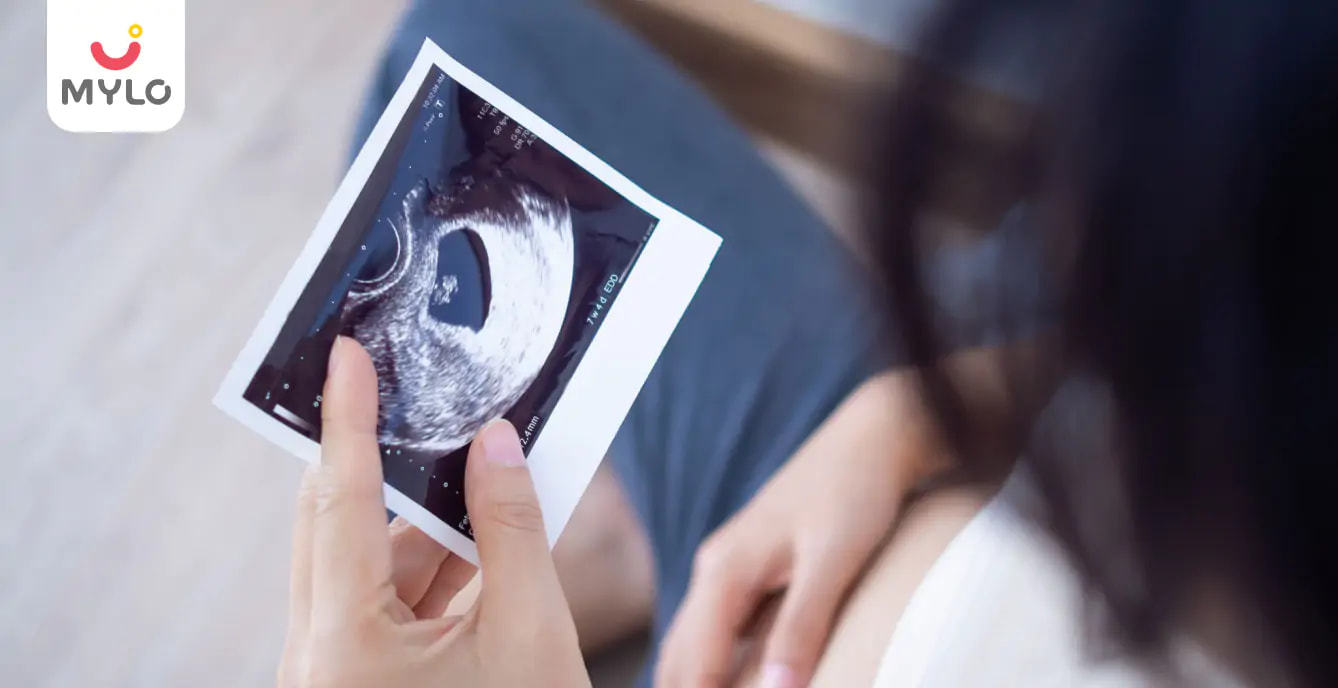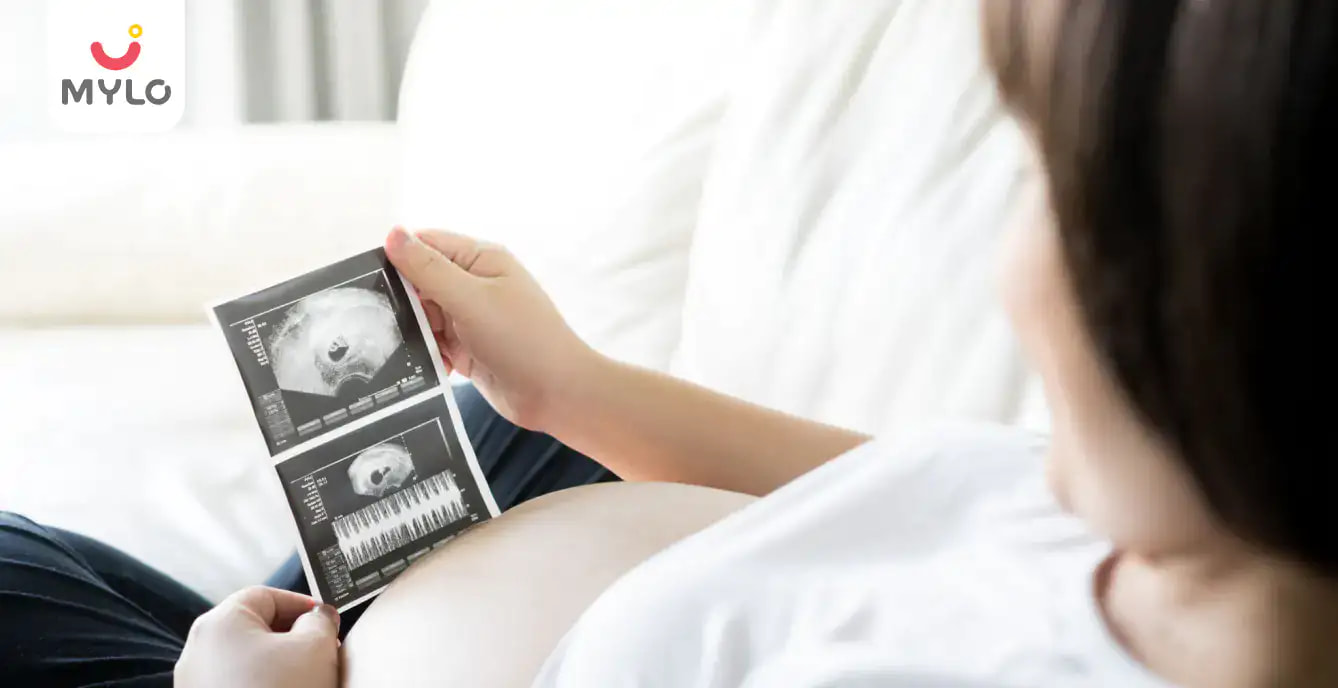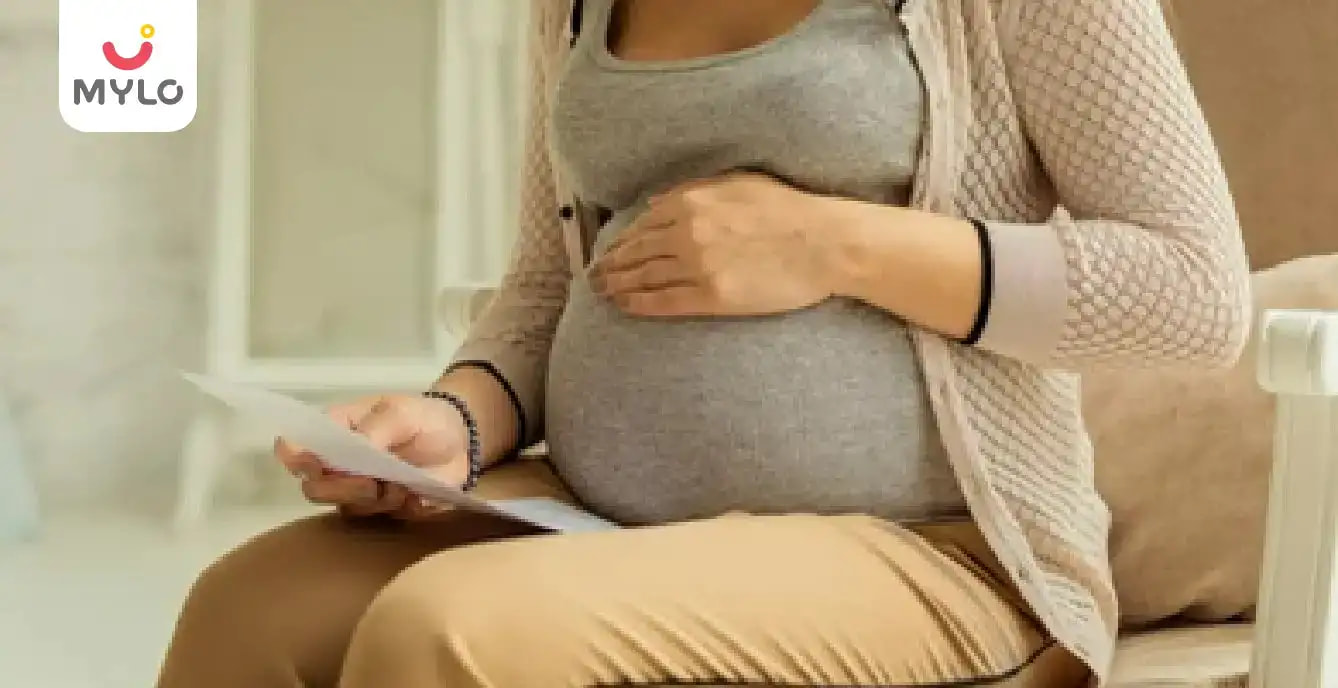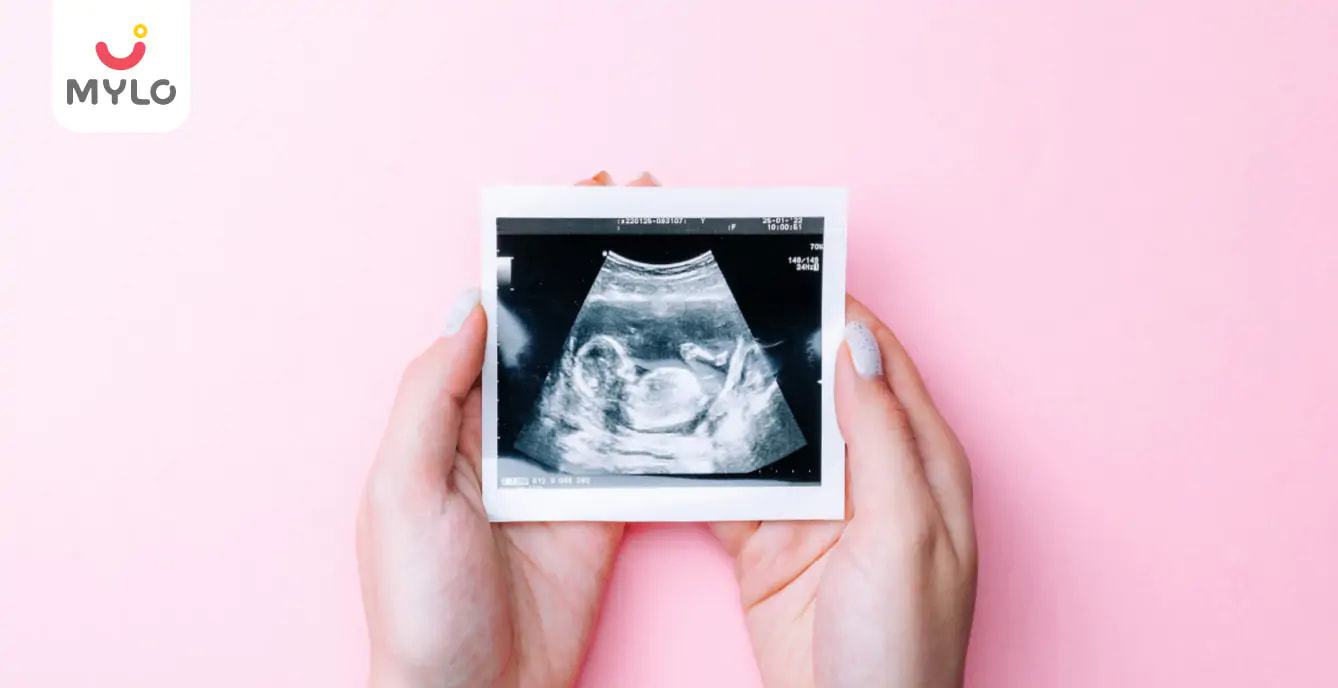Home

First Trimester

First Trimester of Pregnancy
In this Article

First Trimester
First Trimester of Pregnancy
Updated on 20 October 2023
As the little miracle of life develops in your womb, you are about to experience different symptoms and changes in each stage of your pregnancy. There are three stages of pregnancy: first trimester, second trimester and third trimester. Understanding each trimester of pregnancy can help you navigate the challenges and changes that come along with each pregnancy trimester. Let us understand in depth the first trimester of pregnancy along with its symptoms, precautions and baby growth.
What is First Trimester of Pregnancy?
The first trimester of pregnancy is the earliest of the stages of pregnancy. The first trimester of pregnancy starts on the first day of your last period (yes, even before you’re pregnant) and lasts for 13 weeks. Your and your baby’s body’s structure and organs undergo various rapid changes in the first trimester of pregnancy. Some of the changes you will experience are nausea, breast tenderness, frequent urination and fatigue.
You may also like: Guide: Following A Healthy Diet During Your First Trimester Of Pregnancy
First Trimester of Pregnancy Symptoms
Every woman is unique and so is her pregnancy. While some women glow during their first trimester of pregnancy, others are exhausted with morning sickness. Here are some common first trimester of pregnancy symptoms most women experience.
1. Bleeding
About one-fourth of women experience bleeding during the first trimester of pregnancy. Bleeding or light spotting early in the pregnancy are signs of implantation i.e., the fertilised embryo has attached itself to the uterine wall. This is also called implantation bleeding. However, if you notice severe bleeding along with cramping and sharp pain in the belly, you should immediately call the doctor. These could indicate a miscarriage or ectopic pregnancy.
2. Breast Tenderness
Swollen and sore breasts are one of the earliest first trimester of pregnancy symptoms. Breast tenderness is caused by increased hormonal changes in the body in preparation for breastfeeding. Your breasts will remain tender throughout the first trimester of pregnancy. It’s best to push those padded bras to the back of your drawer and wear comfy, support bras.
3. Food Cravings
Over 60% of women experience food cravings throughout the different stages of pregnancy. More than half of pregnant women begin to eat foods they didn’t like previously. Additionally, these cravings are not just limited to taste but also smell. So, don’t be surprised if the crackling of asafoetida and cumin seeds makes you crave a certain dish. Just try not to give in to these cravings all the time.
4. Frequent Urination
Although your baby is too tiny to exert pressure on your bladder, your uterus is constantly growing and putting pressure on the bladder. Consequently, you may be making more trips to the washroom during the different stages of pregnancy. While it can be irritating, don’t limit your fluid intake as your body needs to stay hydrated. Remember not to hold the pee in and answer as soon as nature calls.
5. Morning Sickness
Nausea is one of the most common first trimester of pregnancy symptoms. Nearly 85% of women experience nausea and vomiting during the first trimester of pregnancy. This is due to the hormonal changes taking inside your body and can last throughout the first pregnancy trimester. Some women may experience mild nausea while others severe, especially in the morning. Try eating small, high-protein meals and fresh fruit juices to keep nausea at bay.
6. Heartburn
The body begins to produce more of the hormone progesterone during the stages of pregnancy. Progesterone relaxes smooth muscles like the tube that connects your mouth and stomach. When relaxed and loosened up, these muscles fail to keep food and acids down in your stomach. As a result, you may experience acid reflux or heartburn. Try eating small meals throughout the day and avoid lying down right after eating. Additionally, you should keep greasy, spicy and acidic foods off your plate.
7. Constipation
Another victim of the high levels of progesterone in your body is your intestines. Progesterone slows down muscular contractions that help in moving the food through your digestive tract, causing constipation. Additionally, the extra iron from your prenatal vitamins further contributes to constipation and gas throughout the stages of pregnancy. Try to increase your fiber and fluid intake and physical activity to counter constipation during pregnancy.
You may also like: 14 Lifesavers For Your First Trimester
First Trimester Changes in Body
Throughout the different stages of pregnancy, your body will undergo several changes to prepare, nourish and protect your baby. Besides the first trimester of pregnancy symptoms, you can expect to notice the following changes in your body during the first trimester of pregnancy:
1. Your mammary glands will enlarge in preparation for breastfeeding, resulting in swollen and sore breasts. Additionally, your areolas (the pigmented area around the nipples) will enlarge and darken, and the veins on the surface of your breasts will become more visible.
2. You may also experience mood swings, irritability, fatigue and other physical symptoms common to menstrual periods because of the surge in your hormones. Talking to your partner, friend or family member about your feelings may help you feel better.
3. The physical and emotional demands of pregnancy may take a toll on you, causing you to feel extremely tired and overwhelmed. It’s only normal to get tired easily since your body is working day and night to support your growing baby.
4. Cardiac volume tends to increase by approx. 40-50% from the first trimester of pregnancy to the last. An increase in blood volume is needed for extra blood flow to the uterus. Consequently, the cardiac output increases and may result in a higher pulse rate during pregnancy.
Baby's Growth in The First Trimester
During the first trimester of pregnancy, your baby goes from being a fertilised egg to a fully-formed foetus. All the major organs and systems of your baby begin to take shape. So, anything you are exposed to, be it drugs, alcohol or radiation, will affect your baby. Let's understand more about baby growth in the first trimester of pregnancy.
1. The fertilised egg attaches itself to your uterine wall and begins to become a cluster of rapidly dividing cells. The placenta, umbilical cord and amniotic sac all begin to grow to support your growing baby.
2. As the first trimester in pregnancy advances, your baby’s nervous system develops from an open neural tube to the brain and spinal cord. Nerves and muscles begin working together, allowing your baby to move.
3. Your baby’s heart will soon take shape and start beating. By the sixth week ultrasound, you will be able to hear it.
4. Your baby will soon develop a digestive system, which includes the intestines and kidneys. The lungs and all other major organs will begin to develop.
5. A soft skeleton of your baby will begin to grow in the first pregnancy trimester.
6. Your baby will start to look like a real baby with arms, legs, fingers and toes. Their face will soon have eyes, ears, nose, mouth, tongue and tooth buds.
7. By the end of the first trimester of pregnancy, your baby will be about 2.5-3 inches long.
How to Stay Healthy During First Trimester?
The baby is most vulnerable during the first trimester of pregnancy. As a result, a pregnant woman must ensure that she stays healthy in the first pregnancy trimester. By including certain things in your diet and routine, you can take good care of yourself and your growing baby.
Here are some good health measures to follow during the first trimester of pregnancy:
1. Take your prenatal vitamins daily
2. Exercise regularly (include Yoga and Kegel exercises)
3. Eat a balanced diet, high in fruits, veggies, fibre and healthy protein
4. Stay hydrated all day long
5. Consume at least 1800 calories each day
6. Choose a doctor and schedule a prenatal visit
First Trimester of Pregnancy Precautions
Exercising caution during the first trimester of pregnancy and the subsequent stages of pregnancy will ensure safe health for you and your baby. By avoiding certain activities and foods, you can hope for a complication-free pregnancy trimester.
Here are some things to avoid during the first trimester of pregnancy:
1. Rigorous exercise or strength training
2. Alcohol, caffeine and smoking
3. Raw fish or smoked seafood
4. Fish with high levels of mercury (like shark, swordfish, mackerel etc.)
5. Raw sprouts or unwashed produce
6. Unpasteurised milk or dairy products
First trimester of pregnancy is considered to be the most delicate of all three as the pregnancy is still new and your baby has only started developing. An awareness of the symptoms you're likely to experience, changes that will take place in your body, your baby's development and precautions to follow for a healthy pregnancy can help you glide through the first trimester and into the next one.
References
1. Anderson J, Ghaffarian KR. (2023). Early Pregnancy Diagnosis. In: StatPearls [Internet]. Treasure Island (FL): StatPearls Publishing
2. Lou S, Frumer M, Schlütter MM, Petersen OB, Vogel I, Nielsen CP. (2017). Experiences and expectations in the first trimester of pregnancy: a qualitative study. Health Expect.
Trending Articles
Pregnancy Trimester | Baby Development | Second Trimester of Pregnancy | Third Trimester of Pregnancy
Popular Articles
Leg Swelling in Pregnancy | Molar Pregnancy | Unplanned Pregnancy | Cervical Ripening



Written by
Anupama Chadha
Anupama Chadha, born and raised in Delhi is a content writer who has written extensively for industries such as HR, Healthcare, Finance, Retail and Tech.
Read MoreGet baby's diet chart, and growth tips

Related Articles
Related Topics
RECENTLY PUBLISHED ARTICLES
our most recent articles

TV & OTT
Top 10 Comedy Movies on Hotstar to Make You Laugh Your Heart Out

Pregnancy Journey
Stages of Pregnancy by Trimester

TV & OTT
Your Streaming Guide to the Best Web Series on Hotstar in Hindi

TV & OTT
Top Romantic Movies on Hotstar That'll Melt Your Heart

Second Child
When to Have Another Child: Timing and Tips

Ayurveda & Homeopathy
Top 10 Benefits of Triphala: Discover the Hidden Health Secrets
- Ayurvedic Medicine for Irregular Periods: Discovering Ancient Remedies for Hormonal Harmony
- The Link Between Missed Period and White Discharge
- Vata Pitta Kapha: The Ultimate Guide to Discovering Your Ayurvedic Constitution
- Top 10 Romantic Web Series on Hotstar You Must Watch
- Back Pain During Period: Understanding the Causes and Solutions
- Pain After Sex: The Ultimate Guide to Understanding Causes and Finding Relief
- Coffee in Periods: Debunking the Myths and Understanding the Facts
- Postmenopausal Bleeding: Symptoms, Causes & Treatment
- Hormone Replacement Therapy (HRT) : Type, Side Effects & Treatment
- Arogyavardhini Vati: How This Herbal Blend Can Help You Balance Your Three Doshas
- How to Clean Your Vagina & Vulva Complete Guide
- Blighted Ovum: Causes, Symptoms & Treatment
- The Ultimate Guide to Consuming Iron and Folic Acid Tablets
- White Creamy Discharge: Is It Normal or a Cause for Concern?


AWARDS AND RECOGNITION

Mylo wins Forbes D2C Disruptor award

Mylo wins The Economic Times Promising Brands 2022
AS SEEN IN

- Mylo Care: Effective and science-backed personal care and wellness solutions for a joyful you.
- Mylo Baby: Science-backed, gentle and effective personal care & hygiene range for your little one.
- Mylo Community: Trusted and empathetic community of 10mn+ parents and experts.
Product Categories
baby carrier | baby soap | baby wipes | stretch marks cream | baby cream | baby shampoo | baby massage oil | baby hair oil | stretch marks oil | baby body wash | baby powder | baby lotion | diaper rash cream | newborn diapers | teether | baby kajal | baby diapers | cloth diapers |








